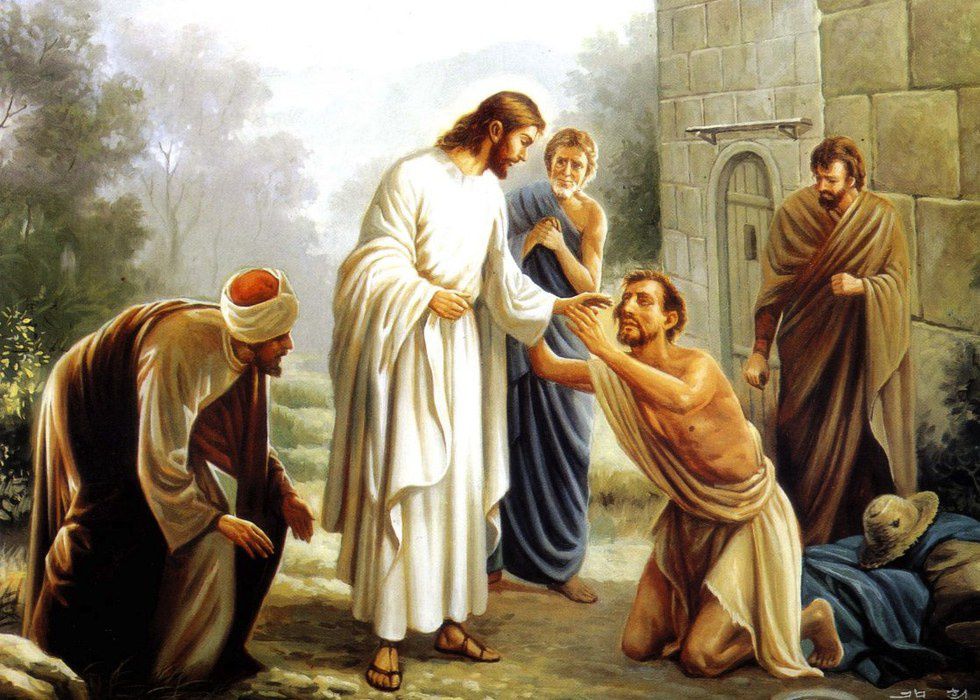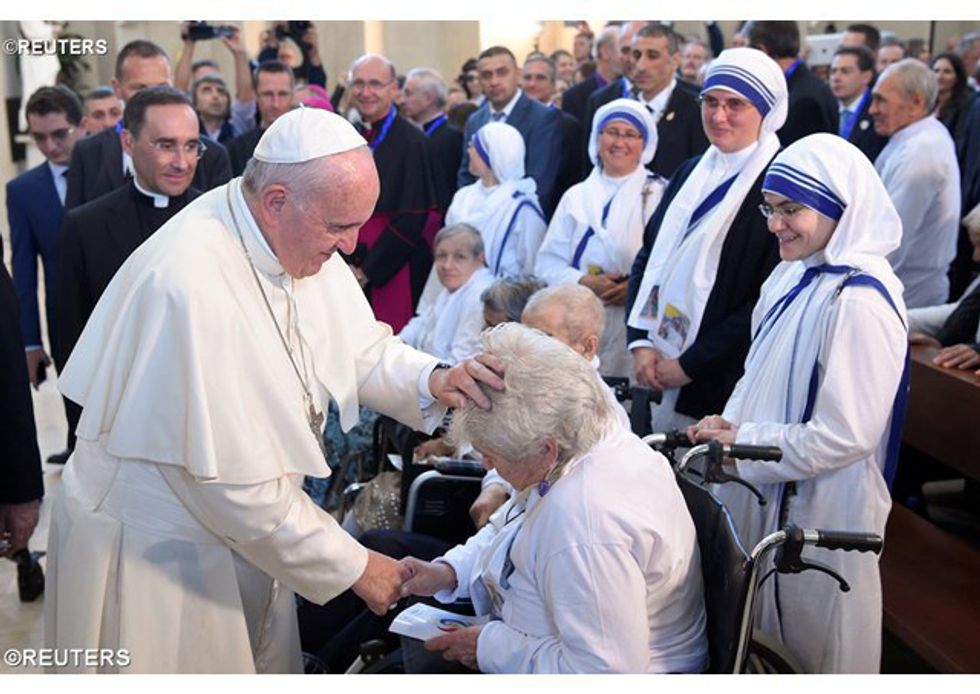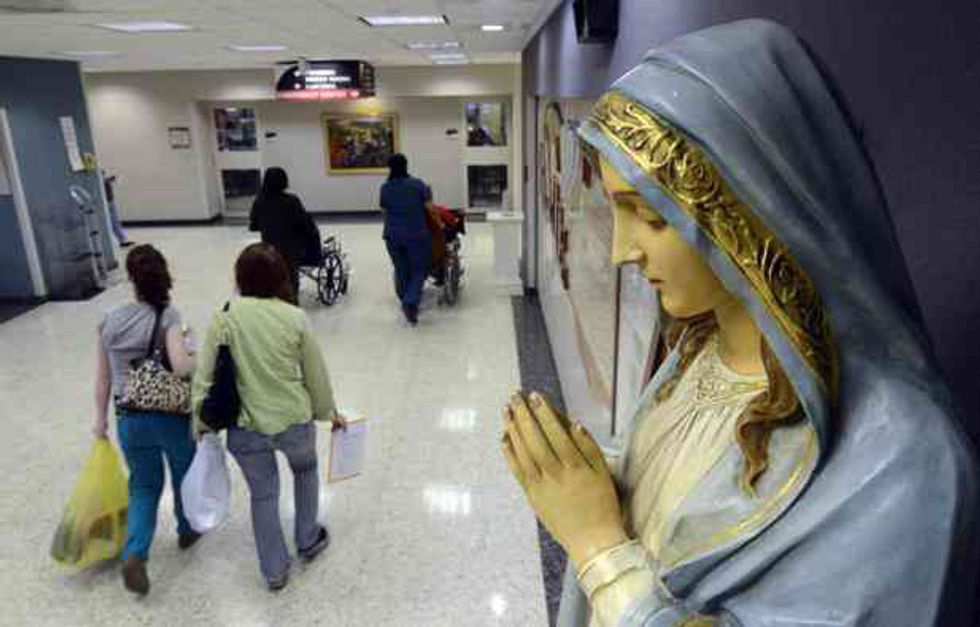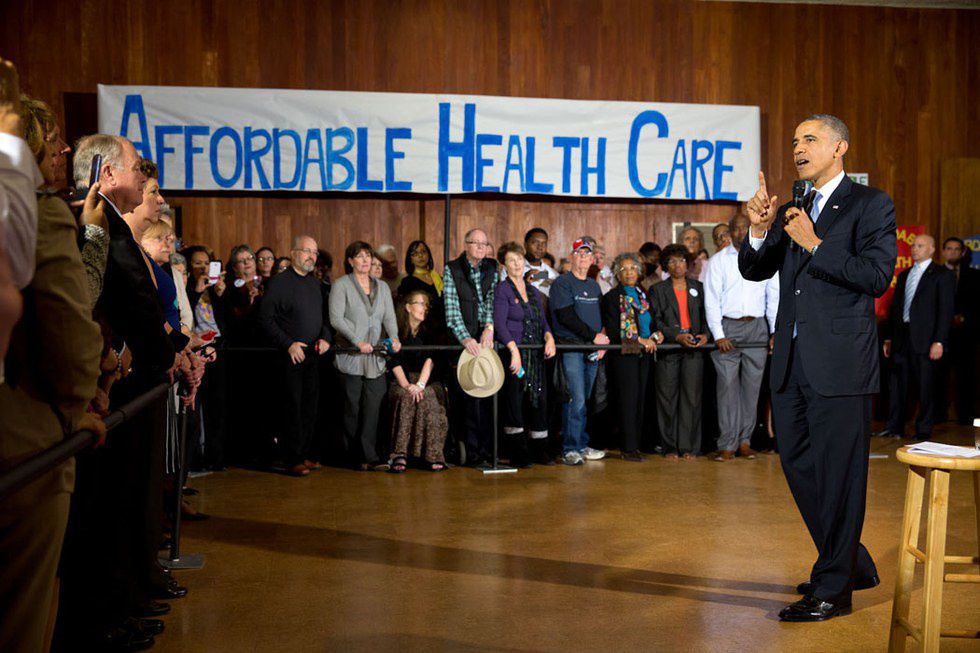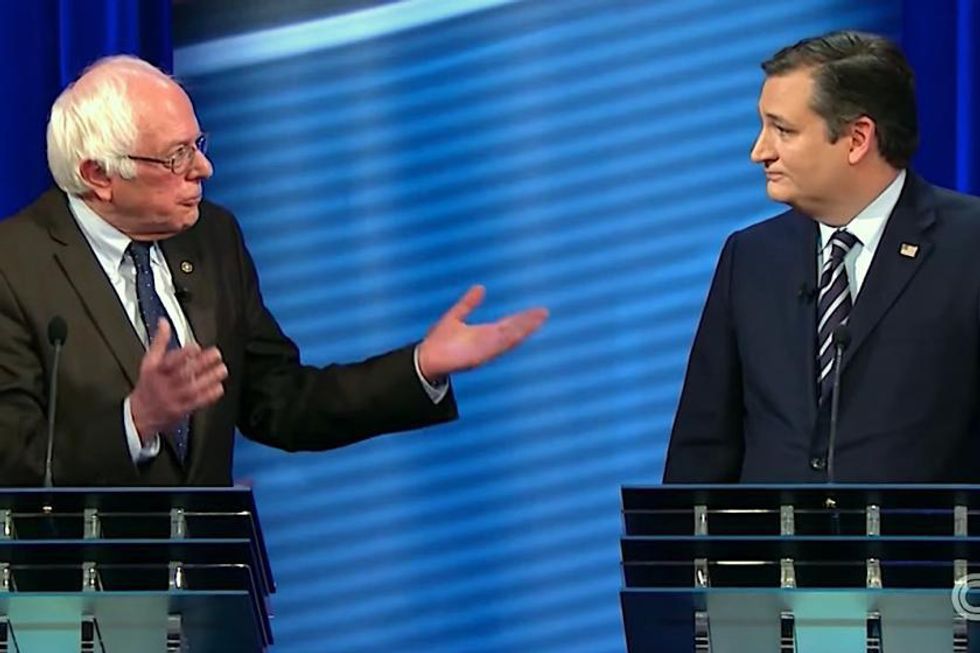Isaiah 10:1-4 says “Woe unto you who legislates evil, who makes laws that makes victims. Laws that make misery for the poor, that rob my destitute people of dignity. What will you have to say on Judgement Day, what good will all your money do you then?” No single political party nor ideology has a patent on the words of Jesus and Christianity. Different aspects of a single faith can be open to a wide array of interpretations. As a progressive and a Catholic, my faith guides my views on public policy. My faith does not mandate what I believe in politically, but aides in coming to political decisions. I would never force my religious beliefs on others through political mechanisms, but do take advantage of it to form my civic leanings, independent of adverse effects on others.
Recommended for you
My progressive beliefs in areas of public policy originate in my faith. When it comes to the issue of healthcare, a relevant and crucial matter, my faith as a Catholic guides my position. At a time when millions of Americans lack healthcare, America is the only major country on Earth that doesn't guarantee health care to all of its people, and the harboring threat of even more people finding themselves without care in the near future, I strongly advocate for a single-payer healthcare system. Harvard University defines a single-payer system as a healthcare system where, “rather than multiple competing health insurance companies, a single public or quasi-public agency takes responsibility for financing healthcare for all residents.” We cannot claim to be Christians while allowing the poor and penniless to suffer without being able to properly receive the care they may desperately need. Healthcare is a life and death issue and must be treated as such. Given that it is in line with my faith, benefits the suffering, and is the most cost effective and efficient way to alleviate hardship faced with health problems, I am committed to fighting and advocating for the United States of America providing healthcare for all of its citizens.
Throughout the Gospels, Jesus teaches his followers to help alleviate the suffering of people they come into contact with. Luke 14: 12-14 states “Then Jesus also said to him who invited Him, ‘When you give a dinner, do not ask your friends, your brothers, your relatives, nor rich neighbors, lest they also invite you back, and you be repaid. But when you give a feast, invite the poor, the maimed, the lame the blind. And you will be blessed, because they cannot repay you.’” In 1 John 3:17, Jesus preaches “If anyone has the world's goods and sees his brother in need, yet closes his heart against him, how does God's love abide in him?” Throughout his ministry, Jesus healed the sick and suffering. The blind, lame, hemorrhaging, and lepers all found relief in the healing powers of Jesus. He gave the Twelve Apostles in Matthew 10:1 the power to drive out demons and “heal every disease and sickness.” Political humorist John Fugelsang, when discussing how his Catholic faith influences his political beliefs, has stated that “Jesus never asked a leper for a copayment.”
The message of helping the poor and suffering is not unique to the words of Jesus in the bible. Throughout the bible and in nearly every book, passages involving helping the downtrodden are prevalent. The ideas of helping and providing for others is constant in the bible. Leviticus 25:35 says ““If one of your brethren becomes poor and falls into poverty among you, then you shall help him, like a stranger or a sojourner, that he may live with you.” Deuteronomy 15:10-11 states “For the poor will never cease from the land; therefore I command you, saying, ‘You shall open your hand wide to your brother, to your poor and your needy, in your land.” Proverbs 14:31 says, “He who oppresses the poor reproaches his Maker, but he who honors him has mercy on the needy.” Helping the poor is not unique to the Gospels, but consistently mentioned throughout the bible.
As a Catholic, I often look to the words of the bible for guidance. Seeing the abundance of passages in reference to helping those less fortunate, I cannot sit idly by and ignore the plight of the suffering. My faith instills in me a desire to help others and to support policies, politicians, and organizations that do the same. The message of helping and healing does not end in the Old and New Testaments, but the Vatican also has vigorously advocated the teachings of helping others.
Since becoming Pope, Pope Francis has worked tirelessly on behalf of the poor. On the subject of healthcare, he recently stated that “Health is not a consumer good but a universal right, so access to health services cannot be a privilege.” On a visit to meet with members and supporters of Doctors with Africa last year, the Pope was baffled by the fact that “basic health care is denied to too many people. It is not a right for all, but rather still a privilege for a few, for those who can afford it.” Helping those less fortunate in all respects is close to the Pope’s heart, and providing healthcare for all is a major facet of that.
The United States Conference of Catholic Bishops put together Forming Consciences for Faithful Citizenship: A Call to Political Responsibility from the Catholic Bishops of the United States with Introductory Note. In the document, the Bishops lay out the Church’s views on areas of public policy affecting America and the world. On the subject of health care, the American Bishops echo both the Pope and the bible. In the document, the Bishops maintain, “Health care is an essential safeguard of human life and a fundamental human right. The nation’s health care system needs to be rooted in values that respect human dignity, protect human life, respect the principle of subsidiarity, and meet the needs of the poor and uninsured, especially born and unborn children, pregnant women, immigrants, and other vulnerable populations.”
The Catholic Church has a rich history of helping the sick. From its early years all the way up to present day, missionaries and churches have taken the ill in, in an effort to heal them. In the Church’s early years, priests were often positions as well. Early Christians were passionate about taking care of the sick. They established hospitals and refuge for the ill. The houses of bishops were often used to take care of the sick. As the centuries have gone by, the church has continued its work to help others. Catholic hospitals have become prevalent all across the world. Missionary work continues on and the missionaries often provide healthcare to those they meet. There are even religious orders dedicated specifically to caregiving.
The Catholic Church has Three Pillars of Authority; Sacred Scripture, Living Magisterium, and Sacred Tradition. When looking for truth, Catholics look to the written word in the Bible, the history of the Church, and the interpretation of the Pope and Bishops. Throughout the Bible, authors of the various books speak of helping and healing others. Jesus spoke numerous times of taking care of the poor and downtrodden, healed many people that he came into contact with, and commanded his apostles to do the same. The Pope has maintained that healthcare is a universal right, and American Bishops and their counterparts around the world have echoed his words. Throughout the Church’s history, Catholics have worked across the globe to help and heal people. In addition to evangelizing, missionaries have often provided healthcare to those they've come into contact with. Sacred Scripture, the Living Magisterium, and Sacred Tradition all seem to align on the issue of health care. The quest to provide care for all people should be a quest for all Catholics.
A study done by Harvard University in 2009 found that 45,000 deaths annually were linked to lack of health coverage. Since the Affordable Care Act was signed into law, there have been numerous benefits. Young people can stay on their parent’s plan until 26, people cannot be denied for a pre-existing condition, large employers must offer coverage to full-time workers, and Medicaid eligibility expanded. Despite benefits of the Affordable Care Act and the uninsured rate being at a historic low, it still has numerous problems. The Affordable Care Act is not universal health care, Americans still must pay outrageous rates for copayments and deductibles. Health care in America is still influenced by the profit motive, healthcare industry’s profits have rapidly expanded since the passage of the ACA.
There are many benefits of the Affordable Care Act. The solution to fixing health care in America is not the elimination of the ACA. The Congressional Budget Office reported that 18 million Americans would lose health insurance in the first year of repealing the ACA without a replacement. Despite attacking the Affordable Care Act for years, Republicans have shown to be unable to develop a plan for replacing it. When they do finally settle on a plan, it's highly unlikely that all Americans who have health coverage today (thanks to the ACA) will be able to keep it. The solution to fixing health care in America is not maintaining the status quo nor going back to where we were before, but a bold new vision. America needs a single-payer health care system.
A single-payer system would guarantee health care to all people. University of Berkeley Professor and former Labor Secretary, Robert Reich has supported a single-payer system because it is the most humane and cost effective way to provide health care in America. The Atlantic has reported that America spends far more per capita on healthcare than other first world nations, yet is the only major country on Earth that doesn't provide healthcare to all of its people. It further went on to report that America has one of the lowest life expectancy rates among Western nations. Essentially, Americans get less health care, but spend more on it. Single-payer could actually save Americans money with its adoption. In his 2016 run for the presidency, Senator Bernie Sanders (I-VT) advocated for a single-payer system. He explained that his plan would raise taxes slightly on Americans, but save them money in the long run. No longer would Americans have to pay high copayments or deductibles. Taking the profit motive out of healthcare would lessen the cost because Americans’ payments would no longer be going to the healthcare industry’s executives, advertising, and billing locations. Despite having to pay slightly more in taxes, Americans would save thousands of dollars every year.
A debate hosted recently by CNN on the future of the Affordable Care Act pitted Senator Sanders, advocating expanding it into single-payer, against Senator Ted Cruz (R-TX), who supports its repeal. Senator Cruz attacked Sanders’ plans as unrealistic. He stated that “rationing” occurs in nations with universal coverage and Americans need to be able to have access to affordable coverage. Senator Sanders responded with the fact that “rationing” occurs in America when people have to choose between going to the doctor and putting food on the table. He went on to say that rationing is also done in America based on income: "If you are very rich you can get the best healthcare in the world.” He dispelled the notion that Americans only need “access” when it comes to healthcare. “You have access, but you don't have enough money. You have access right now, go out and get a really great health insurance program. Oh, you can't do it because you can't afford it. That's what [Cruz] is saying. Oh, you want to go out and buy one of Donald Trump's mansions?" he continued. "You have access to that as well. Oh, you can't afford $5 million for a house? Sorry. Access doesn't mean a damn thing!"
As a Catholic, a progressive, an American, I believe in a just and humane society. When people have to decide between putting food on the table and going to the doctor, that is not humane. When being diagnosed with a disease and seeking treatment can cause someone to go into bankruptcy, that is not humane. My faith guides my politics perhaps in no greater way than the quest for universal healthcare. If someone claims to be “pro-life” then supports people and policies that cause hardship for the poor and suffering, they are not pro-life. They're only pro-birth. Catholics in America must decide whether to live out their faith on Sundays alone or all seven days a week. Isaiah chapter 10 references God’s poor and destitute people. If we as Catholics desire to live out our faith, it is imperative for Americans to work to help God’s poor and destitute people.




